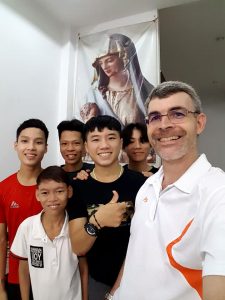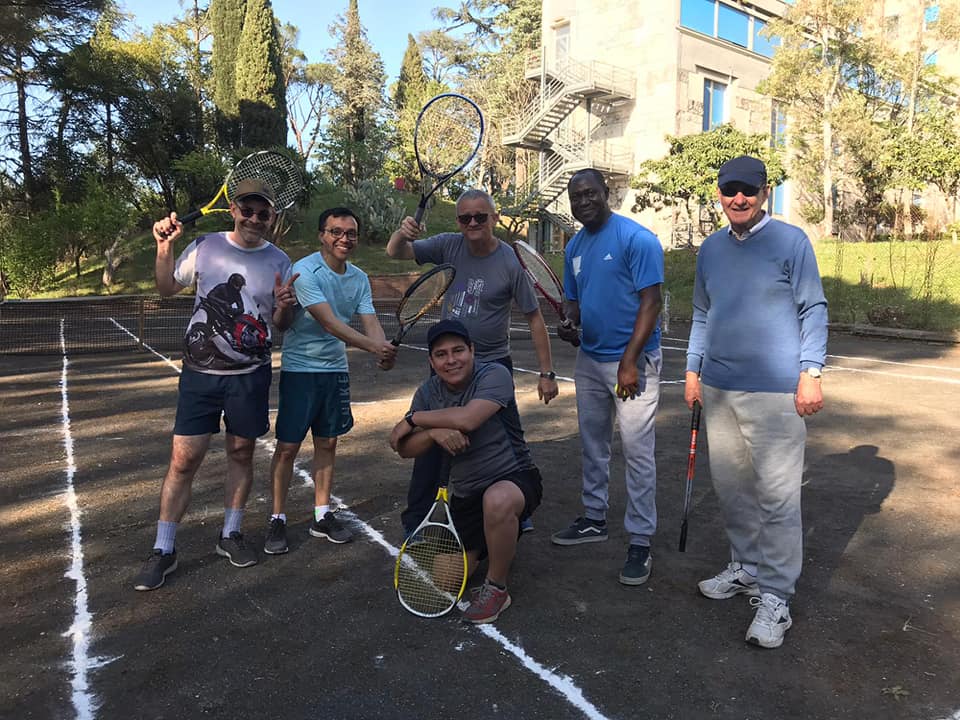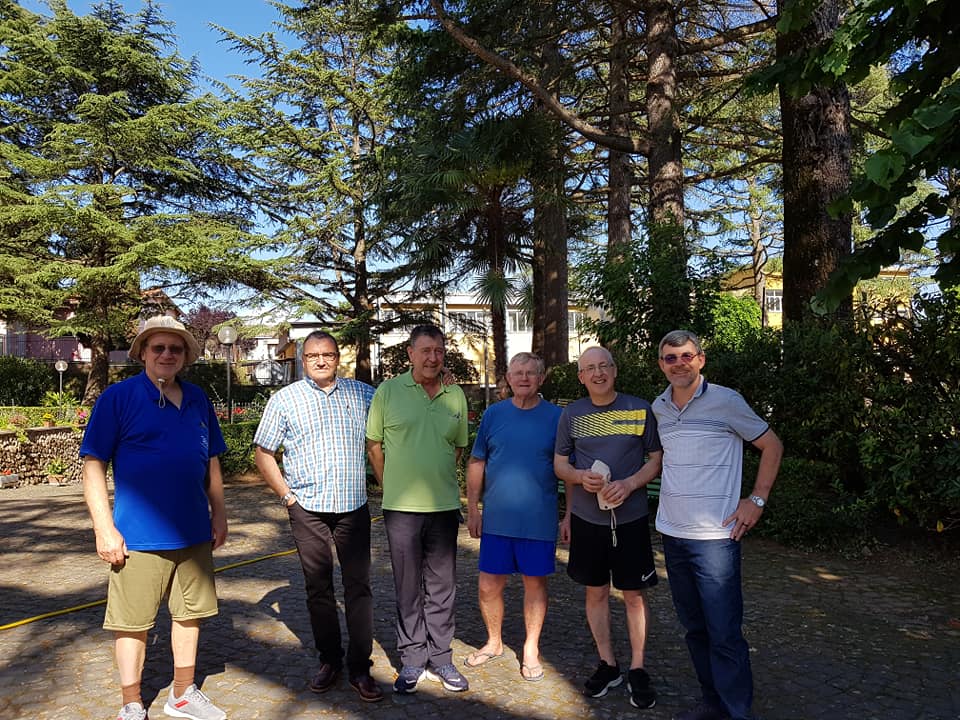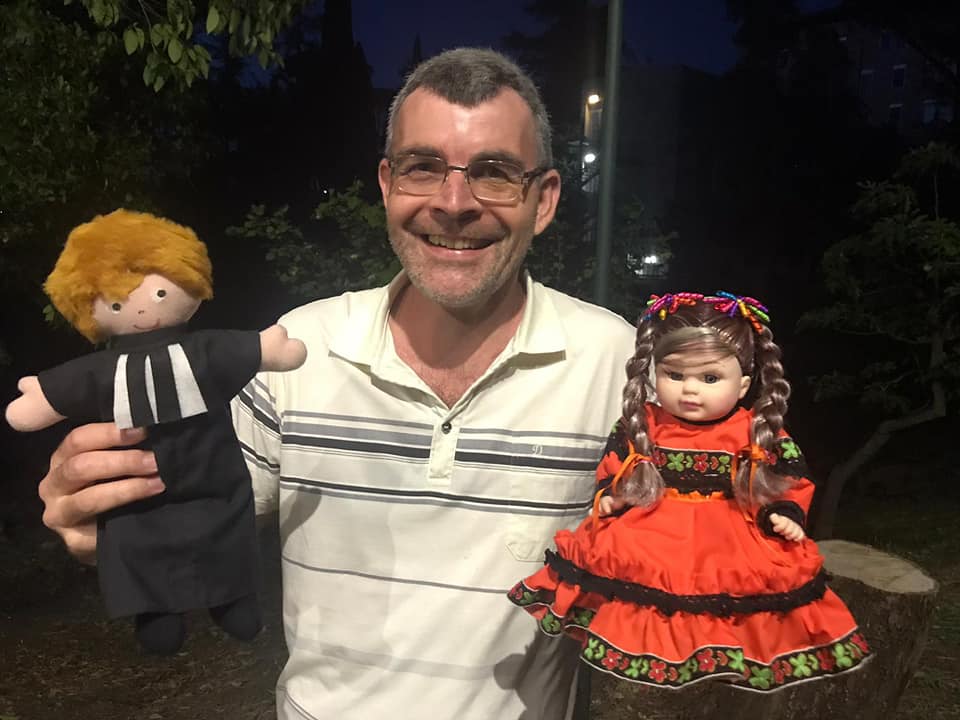
Interview with Br. Canísio José Willrich, Superior of the District of Asia
Brother Canísio is originally from Brazil and comes from the province of Brasil Sul-Amazônia. In 2007, he accepted the invitation to be part of the General Government’s “Missio Ad Gentes” programme. In 2008 he travelled to Vietnam, where he stayed until 2012 and from 2016 until August 2019, when he took up the position of District Superior. During these years he was formator in the novitiates of Cotabato in the Philippines (2012-14) and Tudella in Sri Lanka (2014-16).
In February of this year, Br. Canísio arrived at the General House to participate in the annual meeting of the Superiors of the Administrative Unit with the General Council. Because of COVID-19, he is still in Rome, being unable to return to the District.
How was the change from Brazil to Asia?

It was just like the long journey from Brazil to Asia, with surprises and expectations of how to relate to people of another language and culture, and to eat things I had never seen before. The trip was exhausting, but after a while I got my strength back and started making new friends – what seemed so far away is now part of my daily life!
It is comforting to feel at home with other Marist Brothers from other countries and to feel the vitality of the local Catholic community. I felt that our Good Mother and Champagnat were already there, welcoming me to strengthen my missionary spirit.
Without forgetting my origins, I entered into this new world full of marvels that are revealed every day, and conscious that God had prepared me as his instrument in this new mission.
What does it mean to be the Superior of an Administrative Unit made up of 6 countries?
There are 10 Marist communities in 6 different countries and cultures, and in addition to that, I also visit the young people in formation and the brothers in 2 other countries. This cultural variety enriches the District and gives it vitality. Of course it is not easy to follow everything, it is complex and requires a lot of dialogue, understanding of people and of the reality of each community.
The important thing is to strengthen the local leaders, good community animators, and little by little, give more responsibility to the young indigenous Brothers. The community is the cell that generates life and light, and so, together with the District Council, we seek to accompany the local animators and leaders.
What are the main challenges and strengths of MDA?
Challenges:
- Geographical distance, isolated communities and some with few Brothers.
- Sustainability, both financially and in terms of people.
- Accompaniment and qualified education of young Brothers.
- Obtaining visas for foreign missionary Brothers in some Asian countries.
- Having Brothers for vocation promotion and initial formation. We have vocations in some countries, but we lack formators
- Encourage the movement of lay Marists
- To accompany the Brothers, communities and works at a distance (especially in this time of pandemic).
Strengths:
- The Marist charism speaks for itself. People like and appreciate our way of being Marist and living.
- The presence of young indigenous brothers.
- The collaboration and support between religious congregations and the local church.
- The vigorous missionary spirit of the Brothers; even some of the older ones are enthusiastically collaborating.
- The support of the Marist General Council; participation in some meetings and visits to the District.
- The fragility: we have scarce economic resources and we have a small number of Brothers and lay people, but God has provided what we need, strengthening our life and mission.
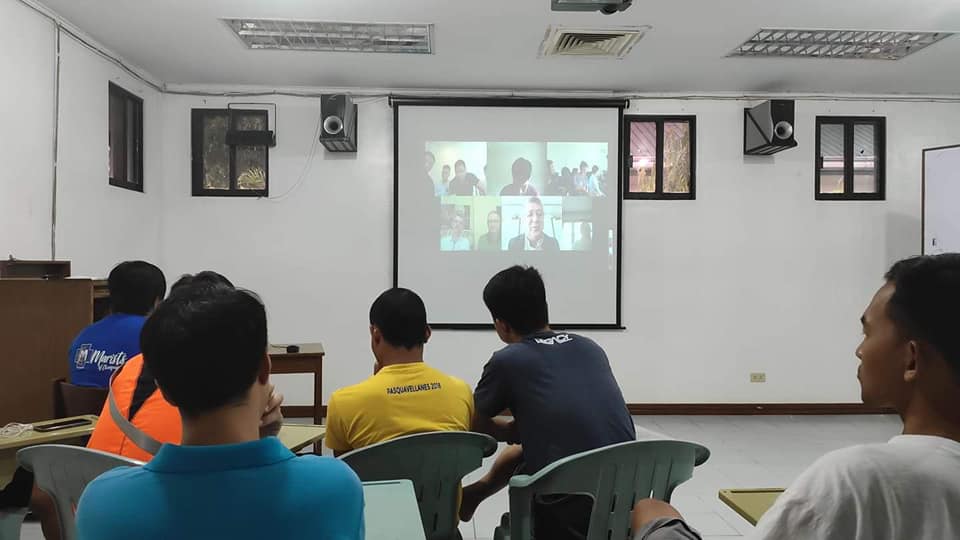
How do you visualise Marist life in Asia in the future?
In Asia we have two Provinces and a District. I believe that the District is taking its steps; it is young and willing to walk as a global family with the other administrative units of the region and the world.
The Marist presence and charism is taking root in these new cultures and is already flourishing, bearing fruit. The District has great youth potential, vitality and enthusiasm which, with God’s grace, is transforming and making a difference in the lives of many poor children and young people.
What is the current situation of Marist life in the District in the face of the Pandemic?
The situation changes according to the country; the Brothers, formators and collaborators are all well, thank God!
Our works follow the guidelines of the local authorities. As in many parts of the world, we have difficulty in maintaining the works financially. Some are closed and others are only partially functioning. We are trying to continue to support the educators and to continue some solidarity activities for those most affected by the pandemic.
So far it is almost impossible to make international trips, so there are Brothers and formators who cannot travel to continue their formation and studies in the proper formation houses. We are adapting to this difficult reality, learning new ways of acting and organizing ourselves with the resources we have.
What have you learned from these months of forced quarantine in Rome?
I have been in Italy for almost 7 months now, but I feel at home, brothers among brothers. Of course I would like to be physically closer to the communities in Asia, but this is not possible at the moment because of the restrictions that exist for those who wish to travel to Asia.
I have tried to find new creative ways to be united with the Brothers, the communities, the people in formation and the works. It is a great challenge to work at a distance, on line, virtually…, it is an alternative, it is a means…, but it seems that something is missing… and it is true, I believe that as Nuno Crato, the former Minister of Education of Brazil said: “The great lesson of the pandemic is this: nothing replaces face-to-face teaching”.
I feel that we are all learning and as we walk together we can find some signs of what God is teaching us, and to what and to whom we should give more attention.
I thank the General Council and the Provinces for the human, spiritual, pastoral and financial support they are giving to the District. I take this opportunity to ask you to continue sending Brothers, lay people and financial support to the Marist work “ad gentes” in the Marist District of Asia.

